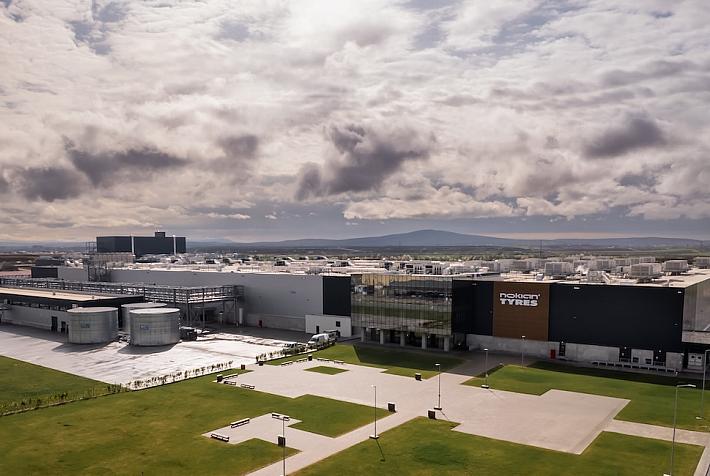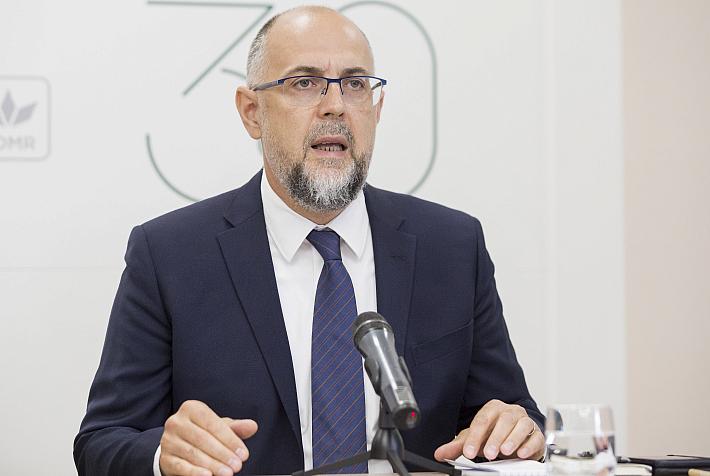CONFIDEX Index: Companies in services, energy most optimistic amid unstable global context

The 12th edition of the CONFIDEX study, which measures the confidence levels of managers heading companies in Romania, highlights the pressures of an increasingly unstable global context but also increased resilience and adaptability. The most optimistic managers were in the services and energy sectors, while most pessimistic were active in agriculture and transportation.
The survey, supported by private equity funds ROCA, Agista, and CITR, included over 500 managers from small, medium-sized, and large companies in Romania. It was conducted right before the Trump administration announced its new tariff policies, which sent the global economy into shock.
Nevertheless, as talk of tariffs was already a global issue, the report shows that 64% of managers in the study expect the global economy to worsen (up from 55% last year). Another 42% believe their own company’s situation will remain stable, while 26% anticipate improvement.
The CONFIDEX index for H1 2025 is 51.3, reflecting a near-identical level to the end of last year (52), indicating a state of waiting while signaling that Romanian businesses are still “holding the line” in a complicated landscape. Companies in the services sector emerge as the most optimistic, with a confidence index of 52.7, followed closely by IT (52.9). Conversely, the agricultural sector takes a more cautious stance (index of 45.7), amid a challenging situation overall.
„For the third consecutive semester, confidence in the economy remains stable, a sign that the business environment has learned the lessons of recent years. [...] Although the global context is becoming increasingly unstable, Romanian companies seem to have developed the necessary antibodies to forge ahead, even amid turbulence,” said Andrei Cionca, co-founder of private equity funds ROCA and Agista, and initiator of the CONFIDEX study.
He also noted the impending effect of trade tariffs, which will primarily impact Romania indirectly, but also increased pressure from Chinese exports looking for markets to replace the United States. The latter was also a concern form Romanian aluminum producer Alro, which warned of a similar danger.
The results of the 12th edition of the CONFIDEX study indicate a general trend of caution regarding the current economic landscape, marked by uncertainties and risks. The majority of managers (57%) predict an intensification of inflation, while 39% expect Romania’s GDP to decline in the coming months. These projections are exacerbated by expectations of rising unemployment rates (49% of respondents) and a depreciation of the Romanian Leu against the Euro (54% of respondents).
Regarding perceptions of their own business developments, 41% of managers report that their company’s situation has deteriorated over the past six months, with half of them believing that conditions will worsen in the short term. Simultaneously, perceptions of macroeconomic developments have worsened in the last six months, with 79% of managers feeling a decline in the global economy and 72% in the European economy.
Managers are particularly attentive to operational costs, with 73% of respondents anticipating an increase in production and operating expenses over the next six months, which may influence their pricing strategies. Furthermore, in the upcoming period, managers are focusing on essential aspects for securing and developing their businesses. Priorities identified in the 12th edition of the CONFIDEX study include improving customer relationships (29%) and increasing sales (47%), along with diversifying investments.
In this context, attracting capital becomes essential. With an investor confidence rating of 81%, managers and entrepreneurs express a growing need for a pronounced role of investors in the economy. Consequently, 32% of managers indicate they require financial support from investors, who are perceived as valuable partners for the financial stability of companies and for developing business strategies that navigate current challenges and scale operations. Managers acknowledge that investors significantly contribute to the financial stability of the companies they invest in, with 72% of respondents recognizing this contribution.
Product diversification continues to be perceived as a primary opportunity, with 23% of managers highlighting this aspect. This opportunity manifests across various sectors, including industry, construction, trade/FMCG, and energy. The list of opportunities is rounded out by easier access to international markets (15%) and digitalization/technologization (13%). Although these aspects are primarily associated with the IT sector, all sectors identify significant potential in increasing productivity through automation. Other relevant opportunities highlighted by the study include increased investments (12%) and attracting new customers (11%), both showing a slight increase compared to H2 2024.
Additionally, there is a positive shift in perceptions regarding the potential for stimulating market demand, with approximately 10% of companies believing that reducing uncertainties could generate new development opportunities.
(Photo source: press release)












